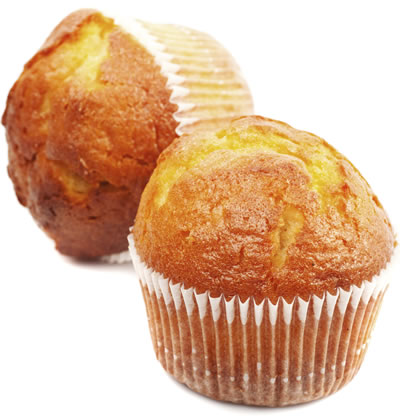How can I lose belly fat?
You can do it! But always keep in mind that fat in the belly usually does not come off quickly (as if you didn’t already know).

What dad with a tummy doesn't have a kid who likes to play drums on it?! In this article, learn how to lose belly fat (and if the kids object, promise them a real set of drums).
Don’t fall for claims in diet books or on the Internet that promise you’ll lose belly fat fast. While making such a claim may be an effective way to sell a lot of books, or get a lot of clicks online, there is no good science behind it.
What many studies have proven about losing belly fat are the following:

For evolutionary reasons, people tend to lose fat in the extremities first – the legs, feet, hands, and arms – because these are the areas that keep us mobile, ready to run from danger.
- For evolutionary reasons, people tend to lose fat in the extremities first – the legs, feet, hands, and arms – because these are the areas that keep us mobile, ready to run from danger. The last places to lose fat tend to be the mid-section: the belly, hips, and butt.
- No diet or exercise produces fat loss in one specific area. “Spot reduction” is media hype, not science. Worse yet, it’s counter-productive. After spending a lot of money on useless products to, say, “get 6-pack abs,” what people often get instead is discouragement and a sense that they’ve failed. So they give up. CLick here and earn CLick here and earn CLick here and earn CLick here and earn CLick here and earn CLick here and earn CLick here and earn CLick here and earn CLick here and earn CLick here and earn CLick here and earn CLick here and earn CLick here and earn CLick here and earn CLick here and earn CLick here and earn CLick here and earn CLick here and earn CLick here and earn CLick here and earn CLick here and earn CLick here and earn CLick here and earn CLick here and earn CLick here and earn CLick here and earn CLick here and earn CLick here and earn CLick here and earn CLick here and earn CLick here and earn CLick here and earn CLick here and earn CLick here and earn CLick here and earn CLick here and earn CLick here and earn CLick here and earn CLick here and earn CLick here and earn CLick here and earn CLick here and earn CLick here and earn CLick here and earn CLick here and earn CLick here and earn CLick here and earn CLick here and earn CLick here and earn CLick here and earn CLick here and earn CLick here and earn CLick here and earn CLick here and earn CLick here and earn CLick here and earn CLick here and earn CLick here and earn CLick here and earn CLick here and earn CLick here and earn CLick here and earn CLick here and earn CLick here and earn CLick here and earn CLick here and earn CLick here and earn CLick here and earn CLick here and earn CLick here and earn CLick here and earn CLick here and earn CLick here and earn CLick here and earn CLick here and earn CLick here and earn CLick here and earn CLick here and earn CLick here and earn CLick here and earn CLick here and earn CLick here and earn CLick here and earn CLick here and earn CLick here and earn CLick here and earn CLick here and earn CLick here and earn CLick here and earn CLick here and earn CLick here and earn CLick here and earn CLick here and earn CLick here and earn CLick here and earn CLick here and earn CLick here and earn CLick here and earn CLick here and earn CLick here and earn CLick here and earn CLick here and earn CLick here and earn CLick here and earn CLick here and earn CLick here and earn CLick here and earn CLick here and earn CLick here and earn CLick here and earn CLick here and earn CLick here and earn CLick here and earn CLick here and earn CLick here and earn CLick here and earn CLick here and earn CLick here and earn CLick here and earn CLick here and earn CLick here and earn CLick here and earn CLick here and earn CLick here and earn CLick here and earn CLick here and earn CLick here and earn CLick here and earn CLick here and earn CLick here and earn CLick here and earn CLick here and earn CLick here and earn CLick here and earn CLick here and earn CLick here and earn CLick here and earn CLick here and earn CLick here and earn CLick here and earn CLick here and earn CLick here and earn CLick here and earn CLick here and earn CLick here and earn CLick here and earn CLick here and earn CLick here and earn CLick here and earn CLick here and earn CLick here and earn CLick here and earn CLick here and earn CLick here and earn CLick here and earn CLick here and earn CLick here and earn CLick here and earn CLick here and earn CLick here and earn CLick here and earn CLick here and earn CLick here and earn CLick here and earn CLick here and earn CLick here and earn CLick here and earn CLick here and earn CLick here and earn CLick here and earn CLick here and earn CLick here and earn CLick here and earn CLick here and earn CLick here and earn CLick here and earn CLick here and earn CLick here and earn CLick here and earn CLick here and earn CLick here and earn CLick here and earn CLick here and earn CLick here and earn CLick here and earn CLick here and earn CLick here and earn CLick here and earn CLick here and earn CLick here and earn CLick here and earn CLick here and earn CLick here and earn CLick here and earn CLick here and earn CLick here and earn CLick here and earn CLick here and earn CLick here and earn CLick here and earn CLick here and earn CLick here and earn CLick here and earn CLick here and earn CLick here and earn CLick here and earn CLick here and earn CLick here and earn CLick here and earn CLick here and earn CLick here and earn CLick here and earn CLick here and earn CLick here and earn CLick here and earn CLick here and earn CLick here and earn CLick here and earn CLick here and earn CLick here and earn CLick here and earn CLick here and earn CLick here and earn CLick here and earn CLick here and earn CLick here and earn CLick here and earn CLick here and earn CLick here and earn CLick here and earn CLick here and earn CLick here and earn CLick here and earn CLick here and earn CLick here and earn CLick here and earn CLick here and earn CLick here and earn CLick here and earn CLick here and earn CLick here and earn CLick here and earn CLick here and earn CLick here and earn CLick here and earn CLick here and earn CLick here and earn CLick here and earn CLick here and earn CLick here and earn CLick here and earn CLick here and earn CLick here and earn CLick here and earn CLick here and earn CLick here and earn CLick here and earn CLick here and earn CLick here and earn CLick here and earn CLick here and earn CLick here and earn CLick here and earn CLick here and earn CLick here and earn CLick here and earn CLick here and earn CLick here and earn CLick here and earn CLick here and earn CLick here and earn CLick here and earn CLick here and earn CLick here and earn CLick here and earn CLick here and earn CLick here and earn CLick here and earn CLick here and earn CLick here and earn CLick here and earn CLick here and earn CLick here and earn CLick here and earn CLick here and earn CLick here and earn CLick here and earn CLick here and earn CLick here and earn CLick here and earn CLick here and earn CLick here and earn CLick here and earn CLick here and earn CLick here and earn CLick here and earn CLick here and earn CLick here and earn CLick here and earn CLick here and earn CLick here and earn CLick here and earn CLick here and earn CLick here and earn CLick here and earn CLick here and earn CLick here and earn CLick here and earn CLick here and earn CLick here and earn CLick here and earn CLick here and earn CLick here and earn CLick here and earn CLick here and earn CLick here and earn CLick here and earn CLick here and earn CLick here and earn CLick here and earn CLick here and earn CLick here and earn CLick here and earn CLick here and earn CLick here and earn CLick here and earn CLick here and earn CLick here and earn CLick here and earn CLick here and earn CLick here and earn CLick here and earn CLick here and earn CLick here and earn CLick here and earn CLick here and earn CLick here and earn CLick here and earn CLick here and earn CLick here and earn CLick here and earn CLick here and earn CLick here and earn CLick here and earn CLick here and earn CLick here and earn CLick here and earn CLick here and earn CLick here and earn CLick here and earn CLick here and earn CLick here and earn CLick here and earn CLick here and earn CLick here and earn CLick here and earn CLick here and earn CLick here and earn CLick here and earn CLick here and earn CLick here and earn CLick here and earn CLick here and earn CLick here and earn CLick here and earn CLick here and earn CLick here and earn CLick here and earn CLick here and earn CLick here and earn CLick here and earn CLick here and earn CLick here and earn CLick here and earn CLick here and earn CLick here and earn CLick here and earn CLick here and earn CLick here and earn CLick here and earn CLick here and earn CLick here and earn CLick here and earn CLick here and earn CLick here and earn CLick here and earn CLick here and earn CLick here and earn CLick here and earn CLick here and earn CLick here and earn CLick here and earn CLick here and earn CLick here and earn CLick here and earn CLick here and earn CLick here and earn CLick here and earn CLick here and earn CLick here and earn CLick here and earn CLick here and earn CLick here and earn CLick here and earn CLick here and earn CLick here and earn CLick here and earn CLick here and earn CLick here and earn CLick here and earn CLick here and earn CLick here and earn CLick here and earn CLick here and earn CLick here and earn CLick here and earn CLick here and earn CLick here and earn CLick here and earn CLick here and earn CLick here and earn CLick here and earn CLick here and earn CLick here and earn CLick here and earn CLick here and earn CLick here and earn CLick here and earn CLick here and earn CLick here and earn CLick here and earn CLick here and earn CLick here and earn CLick here and earn CLick here and earn CLick here and earn CLick here and earn CLick here and earn CLick here and earn CLick here and earn CLick here and earn CLick here and earn CLick here and earn CLick here and earn CLick here and earn CLick here and earn CLick here and earn CLick here and earn CLick here and earn CLick here and earn CLick here and earn CLick here and earn CLick here and earn CLick here and earn CLick here and earn CLick here and earn CLick here and earn CLick here and earn CLick here and earn CLick here and earn CLick here and earn CLick here and earn CLick here and earn CLick here and earn CLick here and earn CLick here and earn CLick here and earn CLick here and earn CLick here and earn CLick here and earn CLick here and earn CLick here and earn CLick here and earn CLick here and earn CLick here and earn CLick here and earn CLick here and earn CLick here and earn CLick here and earn CLick here and earn CLick here and earn CLick here and earn CLick here and earn CLick here and earn CLick here and earn CLick here and earn CLick here and earn CLick here and earn CLick here and earn CLick here and earn CLick here and earn CLick here and earn CLick here and earn CLick here and earn CLick here and earn CLick here and earn CLick here and earn CLick here and earn CLick here and earn CLick here and earn CLick here and earn CLick here and earn CLick here and earn CLick here and earn CLick here and earn CLick here and earn CLick here and earn CLick here and earn CLick here and earn CLick here and earn CLick here and earn CLick here and earn CLick here and earn CLick here and earn CLick here and earn CLick here and earn CLick here and earn CLick here and earn CLick here and earn CLick here and earn CLick here and earn CLick here and earn CLick here and earn CLick here and earn CLick here and earn CLick here and earn CLick here and earn CLick here and earn CLick here and earn CLick here and earn CLick here and earn CLick here and earn CLick here and earn CLick here and earn CLick here and earn CLick here and earn CLick here and earn CLick here and earn CLick here and earn CLick here and earn CLick here and earn CLick here and earn CLick here and earn CLick here and earn CLick here and earn CLick here and earn CLick here and earn CLick here and earn CLick here and earn CLick here and earn CLick here and earn CLick here and earn CLick here and earn CLick here and earn CLick here and earn CLick here and earn CLick here and earn CLick here and earn CLick here and earn CLick here and earn CLick here and earn CLick here and earn CLick here and earn CLick here and earn CLick here and earn CLick here and earn CLick here and earn CLick here and earn CLick here and earn CLick here and earn CLick here and earn CLick here and earn CLick here and earn CLick here and earn CLick here and earn CLick here and earn CLick here and earn CLick here and earn CLick here and earn CLick here and earn CLick here and earn CLick here and earn CLick here and earn CLick here and earn CLick here and earn CLick here and earn CLick here and earn CLick here and earn CLick here and earn CLick here and earn CLick here and earn CLick here and earn CLick here and earn CLick here and earn CLick here and earn CLick here and earn CLick here and earn CLick here and earn CLick here and earn CLick here and earn CLick here and earn CLick here and earn CLick here and earn CLick here and earn CLick here and earn CLick here and earn CLick here and earn CLick here and earn CLick here and earn CLick here and earn CLick here and earn CLick here and earn CLick here and earn CLick here and earn CLick here and earn CLick here and earn CLick here and earn CLick here and earn CLick here and earn CLick here and earn CLick here and earn CLick here and earn CLick here and earn CLick here and earn CLick here and earn CLick here and earn CLick here and earn CLick here and earn CLick here and earn CLick here and earn CLick here and earn CLick here and earn CLick here and earn CLick here and earn CLick here and earn CLick here and earn CLick here and earn CLick here and earn CLick here and earn CLick here and earn CLick here and earn CLick here and earn CLick here and earn CLick here and earn CLick here and earn CLick here and earn CLick here and earn CLick here and earn CLick here and earn CLick here and earn CLick here and earn CLick here and earn CLick here and earn CLick here and earn CLick here and earn CLick here and earn CLick here and earn CLick here and earn CLick here and earn CLick here and earn CLick here and earn CLick here and earn CLick here and earn CLick here and earn CLick here and earn CLick here and earn CLick here and earn CLick here and earn CLick here and earn CLick here and earn CLick here and earn CLick here and earn CLick here and earn CLick here and earn CLick here and earn CLick here and earn CLick here and earn CLick here and earn CLick here and earn CLick here and earn CLick here and earn CLick here and earn CLick here and earn CLick here and earn CLick here and earn CLick here and earn CLick here and earn CLick here and earn CLick here and earn CLick here and earn CLick here and earn CLick here and earn CLick here and earn CLick here and earn CLick here and earn CLick here and earn CLick here and earn CLick here and earn CLick here and earn CLick here and earn CLick here and earn CLick here and earn CLick here and earn CLick here and earn CLick here and earn CLick here and earn CLick here and earn CLick here and earn CLick here and earn CLick here and earn CLick here and earn CLick here and earn CLick here and earn CLick here and earn CLick here and earn CLick here and earn CLick here and earn CLick here and earn CLick here and earn CLick here and earn CLick here and earn CLick here and earn CLick here and earn CLick here and earn CLick here and earn CLick here and earn CLick here and earn CLick here and earn CLick here and earn CLick here and earn CLick here and earn CLick here and earn CLick here and earn CLick here and earn CLick here and earn CLick here and earn CLick here and earn CLick here and earn CLick here and earn CLick here and earn CLick here and earn CLick here and earn CLick here and earn CLick here and earn CLick here and earn CLick here and earn CLick here and earn CLick here and earn CLick here and earn CLick here and earn CLick here and earn CLick here and earn CLick here and earn CLick here and earn CLick here and earn CLick here and earn CLick here and earn CLick here and earn CLick here and earn CLick here and earn CLick here and earn CLick here and earn CLick here and earn CLick here and earn CLick here and earn CLick here and earn CLick here and earn CLick here and earn CLick here and earn CLick here and earn CLick here and earn CLick here and earn CLick here and earn CLick here and earn CLick here and earn CLick here and earn CLick here and earn CLick here and earn CLick here and earn CLick here and earn CLick here and earn CLick here and earn CLick here and earn CLick here and earn CLick here and earn CLick here and earn CLick here and earn CLick here and earn CLick here and earn CLick here and earn CLick here and earn CLick here and earn CLick here and earn CLick here and earn And often end up gaining even more weight.
- To lose belly fat, here’s what matters most. You’ve got to burn more calories than you eat. To do so, the Pritikin
More saturated fat, more belly fat
For decades, the faculty at the has stressed the heart-health benefits of steering clear of calorie-dense foods that are also dense with saturated fat, such as red meat, full-fat dairy products like cheese and whole milk, and tropical oils like palm oil and coconut oil.
Now, research is discovering that saturated fat may also be especially problematic when it comes to belly fat.

Two nearly identical muffins, but one adds more belly fat. Can you guess which?
In one recent from Sweden, for example, scientists found that people who were directed to eat muffins made with saturated fat (palm oil) gained more visceral fat than people who got muffins made with polyunsaturated fat (sunflower oil). Visceral fat is fat stored deep in your stomach region, around your internal organs.
The saturated-fat-eaters also gained more liver fat, also in the abdominal area, than the sunflower-fat-eaters.
That’s not to say sunflower oil is good for you. Any oil is super calorie dense, and will likely add inches to your waistline. The palm oil, however, was found to be even more belly-fat-producing.
And palm oil wasn’t the only saturated fat implicated. In another study2, the same researchers also found that butter, which is high in saturated fat, produced more liver fat than the same calories in the form of sunflower oil when fed to obese adults.
More sugar, more belly fat
Sugar, which is dense with calories, has also been found to produce visceral fat.
As you likely already know, visceral fat is nasty stuff. Numerous studies over the past three decades have concluded that the more visceral fat we have, the greater our risk of major cardiovascular events like heart attacks.
And certainly, visceral fat adds pudge to our bellies.
In on sugar and deep-belly fat, scientists from the University of California at Davis found that adding fructose, a form of sugar, to the diets of overweight or obese people significantly increased visceral fat.
Fructose comes largely from sugar-rich foods and beverages. The best and easiest way to limit fructose is to cut out added sugars. Foods packed with added sugars include soft drinks, coffee and tea drinks full of sugars, as well as sweets like candy and ice cream, and bakery goods like cookies, cakes, and donuts.
More research is needed on the effects of calorie-dense foods like sugar and saturated fat on the size of our bellies, but right now, we don’t need extra research to know that sugar and saturated fat are bad news for both our cardiovascular systems and our overall weight-loss efforts.

Comments
Post a Comment